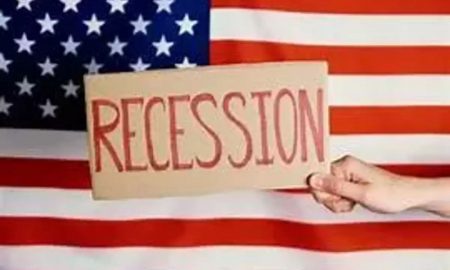
How You Can Utilize Your Home Equity For Retirement Planning

Oftentimes, you might have wondered whether or not to consider your home equity as an asset in your plans after you take up a retirement. Well, there is a solution to your predicament. Remember, you need to maximize every asset in your kitty to materialize your retirement planning. Generally, financial planners don’t consider your home equity when structuring up a retirement income plan. In a practical scenario, you need a roof above your head. So, financial planners consider it as a personal asset, in spite of it being a major and integral part of your total net worth. If you have started planning for your retirement lately, your house can be used to maximum advantage and boost your retirement plans.
Home Equity Is Generally Tax-Free
 The IRS counts your home as a special asset. As of February this year, if you are in a wedlock and filing together with your better half, you can keep out around $500,000 in gains from income taxes while selling off your house. If you are unmarried and filing as an individual, $250,000 is the net amount you can keep out in gains. That implies you can purchase a house, reside in it, and sell it off, but you needn’t pay any taxes on nearly half a million dollars.
The IRS counts your home as a special asset. As of February this year, if you are in a wedlock and filing together with your better half, you can keep out around $500,000 in gains from income taxes while selling off your house. If you are unmarried and filing as an individual, $250,000 is the net amount you can keep out in gains. That implies you can purchase a house, reside in it, and sell it off, but you needn’t pay any taxes on nearly half a million dollars.
With that being said, you need to come out of an ‘ownership test’ with flying colors — that is, you need to be the owner of the house and should have resided there for at least two of the last five years or so. For instance, if you have shelled out $250K to purchase your house, resided in it for at least 24 months out of a 60-month period and sold it off for $750K, the $500K that you gain would be completely free from income tax. Good one, isn’t it? Here’s how you can turn your home equity into your retirement income:
Downsize Your Home And Invest In The Proceeds
 Once you take up retirement, sell your house, opt for a place that’s a bit smaller in size and less pricey, get hold of your gains from the sale, and utilize them as your investment money to open up new avenues of income. Maintaining a smaller residence wouldn’t be that much costly. Such homes will mean lower property taxes since they are generally based on a percentage of the net worth of the entire property. As an alternative option, you can even rent a place. Writing a check to your landlord each month is the only disadvantage of renting. The plus point is you get to invest the entire amount of your home sale to work in your favor.
Once you take up retirement, sell your house, opt for a place that’s a bit smaller in size and less pricey, get hold of your gains from the sale, and utilize them as your investment money to open up new avenues of income. Maintaining a smaller residence wouldn’t be that much costly. Such homes will mean lower property taxes since they are generally based on a percentage of the net worth of the entire property. As an alternative option, you can even rent a place. Writing a check to your landlord each month is the only disadvantage of renting. The plus point is you get to invest the entire amount of your home sale to work in your favor.
Sell Your Place And Opt For A Less Pricey One
Many states in America, such as Texas and Nevada, exempt you from paying tax. You can opt to relocate there or look out for places where the standard of living is way cheaper. College towns can prove to be beneficial for retirees, too. Whether you opt to purchase a small place or rent a home, you can save further in areas where you can live cheaper.
Sell Off Your Home And Move Abroad
 Costa Rica is one of those places where you can retire peacefully without thinking much about your pocket. You have to shell out $500 every month if you decide to rent a two-bedroom home. Medical care is pretty much affordable as well. The upside of moving to such an exotic place is that your family would want to pay you a visit on a regular basis. With the help of technology, you can keep regular contact with your children and grandchildren. And if you are wondering whether you can move back or not, of course, you can!
Costa Rica is one of those places where you can retire peacefully without thinking much about your pocket. You have to shell out $500 every month if you decide to rent a two-bedroom home. Medical care is pretty much affordable as well. The upside of moving to such an exotic place is that your family would want to pay you a visit on a regular basis. With the help of technology, you can keep regular contact with your children and grandchildren. And if you are wondering whether you can move back or not, of course, you can!
Rent Out Your Place
 If you want to stay close to your roots and don’t feel like leaving or don’t even want to downsize your house, you can definitely stick to it and rent out a room or in that case, your basement. A medical student or a studious individual can be a good option in this case. You can rent it out to a retiree who has sold off his home and is now in search of a place to rent. You can always widen up your reach through technology. Airbnb is great if you want to rent your space out for a shorter period and at the same time, earn a bit of extra cash. If you are in search of a long-term solution, you can surf through several sites that are available on the web.
If you want to stay close to your roots and don’t feel like leaving or don’t even want to downsize your house, you can definitely stick to it and rent out a room or in that case, your basement. A medical student or a studious individual can be a good option in this case. You can rent it out to a retiree who has sold off his home and is now in search of a place to rent. You can always widen up your reach through technology. Airbnb is great if you want to rent your space out for a shorter period and at the same time, earn a bit of extra cash. If you are in search of a long-term solution, you can surf through several sites that are available on the web.
If you haven’t saved much, you can utilize your place for accentuating your retirement income. You can have a detailed discussion with a tax professional or a financial advisor before making any financial decisions.
More in Business & Finance
-
`
Curious About Travis Kelce’s Net Worth? Here’s the Scoop!
Travis Kelce’s name echoes through NFL stadiums, synonymous with athletic prowess and electrifying plays. But beyond his touchdown celebrations and record-breaking...
June 10, 2024 -
`
Everything You Need to Know About an Assumable Mortgage
What is an Assumable Mortgage? Whether you are a buyer or a seller, understanding the concept of assumable mortgages can open...
June 6, 2024 -
`
Layoff vs. Fired – Understanding the Crucial Differences
When it comes to job loss, understanding the distinction between being layoff vs. fired is crucial. While both situations result in...
May 30, 2024 -
`
When Are Business Taxes Due 2024? Essential Dates and Deadlines
Tax deadlines can be daunting, but fear not! Let’s break down everything you need to know to stay on top of...
May 22, 2024 -
`
How Much Does Jeff Bezos Make Per Hour? It’s More Than You Think!
Jeff Bezos, a name synonymous with innovation and wealth, stands as one of the world’s richest individuals. While Bernard Arnault and...
May 16, 2024 -
`
What is Portfolio Investment Entity (PIE) and How Can it Benefit You?
In the intricate world of finance, individuals seek avenues to optimize their investments while minimizing risks. One such avenue gaining traction...
May 9, 2024 -
`
What is a Bank Statement? Understanding its Definitions, Benefits, and Prerequisites
Ever wondered where your money goes? A bank statement is like a financial report card, giving you a clear picture of...
April 30, 2024 -
`
Branded Content: A Genuine Way to Connect With Your Audience
Have you ever binge-watched a series on Netflix, only to later realize that the beverage everyone’s sipping on is that brand...
April 23, 2024 -
`
What Car Does Jeff Bezos Drive? Find Out Inside His Exclusive $20 Million Collection
Have you ever wondered what car does Jeff Bezos drive? This man’s tastes in vehicles are as expansive as his business...
April 17, 2024















You must be logged in to post a comment Login